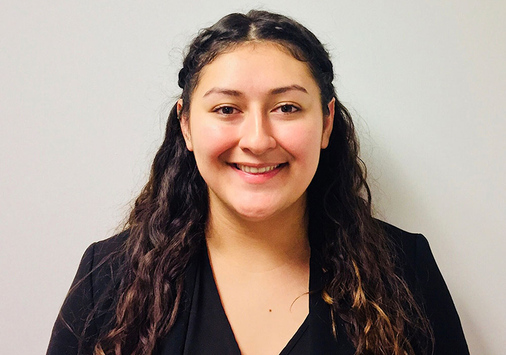Degree Requirements
Overview of the Psychology Major and Minor Requirements
A student can complete either a Bachelor of Arts (B.A.) or Bachelor of Science (B.S.) degree in Psychology at Denison University. The primary difference between the two majors is the completion of additional science courses outside of the Psychology Department when pursuing a B.S. degree in psychology (see details below for a more complete overview of the B.S. degree). A student should discuss with a faculty member of the Psychology Department whether the B.A. or B.S. degree is more appropriate for their situation and future plans. A student can also complete a minor in psychology to accompany their major in another program or department.
Requirements for the B.A. degree in Psychology
The B.A. degree in Psychology requires the completion of ten (10) courses in psychology. Required courses for the B.A. include the following:
| Code | Title |
|---|---|
PSYC 100 | Introduction to Psychology |
PSYC 200 | Research Methods and Statistics |
Two Psychology Elective Courses (see details below) | |
One Psychology Seminar Course (either PSYC 300 or PSYC 301) | |
PSYC 410 | History and Systems of Psychology |
One 200 level Topical/Research Course Combination (counts as two separate courses) | |
One 300 level Topical/Research Course Combination (counts as two separate courses) | |
PSYC 401 | Assessment Exam (does not count as a course) |
Requirements for the B.S. degree in Psychology
The B.S. degree in Psychology requires the completion of eleven (11) courses in psychology and four (4) cognate courses from the Natural Science Division departments outside of psychology. Required courses for the B.S. include the following:
| Code | Title |
|---|---|
PSYC 100 | Introduction to Psychology |
PSYC 200 | Research Methods and Statistics |
One Psychology Seminar Course (either PSYC 300 or PSYC 301) | |
PSYC 370 | Advanced Statistics for the Behavioral Sciences |
PSYC 410 | History and Systems of Psychology |
One 200 level Topical/Research Course Combination (counts as two separate courses) | |
Two 300 level Topical/Research Course Combinations (each count as two separate courses) | |
PSYC 401 | Assessment Exam |
Four Cognate Courses in the Natural Sciences Division (not in Psychology). This requirement may be fulfilled by taking two courses from two different departments or by taking all four courses from a single department. Each of the four courses must be courses that meet the requirements for the major in the respective department. Courses offered by disciplines without a major (e.g., Astronomy or Neuroscience) do not meet this cognate requirement. Courses from Environmental Studies and other Departments/Programs outside the Natural Sciences Division do not meet this cognate requirement. | |
Requirements for the Minor in Psychology
A minor in psychology requires the completion of seven (7) courses in psychology. Required courses for the minor include the following:
| Code | Title |
|---|---|
PSYC 100 | Introduction to Psychology |
PSYC 200 | Research Methods and Statistics |
Three Psychology Elective Courses (see details below) | |
One 200 level Topical/Research Course Combination (counts as two separate courses) | |
Students are strongly encouraged to select a Psychology Department faculty member as their primary or secondary advisor when they declare a major or minor in psychology.
The flexibility of the requirements for the psychology majors and minor means that it is the responsibility of the student to select a course of study most compatible with their future goals. We encourage students to study a broad range of topics in psychology.
Students contemplating graduate school are strongly encouraged to become involved in research activities in the department (e.g., Directed Study, Independent Study, Senior Research, Research Assistant, Denison Summer Science Scholars). Students interested in the intersection of biology and behavior may be attracted to the Neuroscience Concentration. Students interested in the application of psychology to organizations and businesses may be drawn to the Organizational Studies (OS) Program. All students are encouraged to work closely with their advisors in developing an appropriate set of career steps and program of courses in the major.
Overview of the Psychology Courses Offerings
PSYC 100 - Introduction to Psychology
● This course provides an overview of the topics and perspectives in contemporary psychology and an introduction to the methods of psychological science.
● PSYC 100 fulfills the lab science general education requirement (the Y GE).
● PSYC 100 is a prerequisite for all other psychology courses offered.
● Refer to information below regarding Advanced Placement (A.P.) and transfer credit for PSYC 100.
PSYC 200 - Research Methods and Statistics
● This course focuses on the primary research methods and data analysis procedures used by psychologists. Completion of Citi Program's Research Ethics & Compliance training is a requirement of the course.
● PSYC 200 fulfills the quantitative reasoning general education requirement (the Q GE).
● PSYC 200 is a prerequisite for the 200-level research courses.
Psychology Elective Courses
● Elective courses provide an opportunity to study specific topics and perspectives in psychology.
● Psychology electives include topical courses numbered between 206 to 299, 305 to 399, and topical courses numbered above 401. For reference, many of the topical courses are listed below in the 200- and 300-level combination course options. Other topical courses that can be taken as a psychology elective include (but are not limited to):
| Code | Title | |
|---|---|---|
| PSYC 206 | 200-level Special Topics courses | |
| or PSYC 306 | 300-level Special Topics courses | |
| PSYC 224 | Psychology of Music | |
| PSYC 280 | Psychology of Diversity | |
| PSYC 284 | Self Regulation | |
| PSYC 305 | Psychopharmacology | |
| PSYC 315 | Development of Children with Special Needs | |
● The following courses do NOT count toward the elective courses required for the major:
| Code | Title | |
|---|---|---|
| PSYC 361 | Directed Study | |
| or PSYC 362 | Directed Study | |
| PSYC 363 | Independent Study | |
| or PSYC 364 | Independent Study | |
| PSYC 451 | Senior Research in Psychology | |
| or PSYC 452 | Advanced Senior Research in Psychology | |
Psychology Seminar Courses (PSYC 300 - Seminars)
● Psychology seminars allow for a “deep dive” into a specific topic in psychology.
● PSYC 300 – Seminars or PSYC 301 – Seminar: Psychology of Women fulfill the psychology seminar requirement.
● PSYC 300 is open to students who have junior or senior status and have completed a 200-level research course combination.
PSYC 401 - Assessment Exam
● A zero-credit course used to track each Psychology major's completion of the required departmental assessment exam during their senior year. The exam provides an opportunity for students to receive feedback on their mastery of psychology content knowledge.
PSYC 410 - History and Systems of Psychology
● This course offers an overview of the ideas and approaches that have informed psychological study since its inception and explores their relationship to contemporary issues.
● Junior or senior status is required to enroll in this course.
Topical/Research Course Combinations
● The topical/research course combinations allow students to study a particular area or approach in psychology while simultaneously conducting related research.
● Research courses must be taken concurrently with their accompanying topical courses. The first topical/research course combination must be at the 200-level; the second topical/research course combination must be at the 300-level.
200-level Topical/Research Course Combinations
● PSYC 200 and successful completion of Citi Program's Research Ethics & Compliance training are prerequisites for all 200-level Topical/Research Course Combinations.
● All 200-level research courses fulfill a writing requirement (a W GE).
● 200-level Topical/Research Course Combination options:
| Code | Title |
|---|---|
| PSYC 210 & PSYC 211 | Development in Infancy and Childhood and Research in Development in Infancy and Childhood |
| PSYC 220 & PSYC 221 | Social Psychology and Research in Social Psychology |
| PSYC 230 & PSYC 231 | Research in Organizational Psychology and Research in Organizational Psychology |
| PSYC 240 & PSYC 241 | Theories of Personality and Research in Personality Psychology |
| PSYC 245 & PSYC 246 | Adolescence and Research in Adolescence |
| PSYC 250 & PSYC 251 | Psychopathology and Research in Psychopathology |
| PSYC 265 & PSYC 266 | Cultural Psychology and Research in Cultural Psychology |
| PSYC 270 & PSYC 271 | Health Psychology and Research in Health Psychology |
| PSYC 290 & PSYC 291 | Psychology of Thinking and Research in Psyc of Thinking |
| PSYC 207 | 200-level Special Topics Research Course (– Special Topics Research Course may be offered in combination with a 200-level topical course that does not have a preassigned research course. ) |
300-level Topical/Research Course Combinations
● Successful completion of a 200-level research course is a prerequisite for all 300-level topical/research course combinations.
● 300-level Topical/Research Course Combination options:
| Code | Title |
|---|---|
| PSYC 310 & PSYC 311 | Research in Psychology of Learning and Research in Psychology of Learning |
| PSYC 330 & PSYC 331 | Cognitive Psychology and Research in Cognitive Psychology |
| PSYC 340 & PSYC 341 | Sensation and Perception and Research in Sensation and Perception |
| PSYC 350 & PSYC 351 | Biological Psychology and Research in Biological Psychology |
| PSYC 355 & PSYC 356 | Clinical Psychology and Research in Clinical Psychology |
| PSYC 380 & PSYC 381 | Nonverbal Behavior in Human Interactions and Research Nonverbal Behavior in Human Interactions |
| PSYC 385 & PSYC 386 | Adult Development and Aging and Research in Adult Development and Aging |
Important Policies Regarding Psychology Courses
Advanced Placement (A.P.) Credit and PSYC 100 - Introduction to Psychology
Students who earn a 4 or 5 on the A.P. Psychology exam will receive credit toward graduation (it will appear on your transcript as PSYC 096 credit), but this credit does not count towards the psychology major or minor at Denison. Psychology majors/minors (including those with an A.P. Psychology exam score of 4 or 5) must still complete PSYC 100 - Introduction to Psychology at Denison or an equivalent Introductory Psychology course that includes a rigorous laboratory.
Transfer Credit for an Introductory Psychology Course
Students may waive the PSYC 100 - Introduction to Psychology requirement with approved PSYC 199 - Introductory Topics in Psychology credit. The student must submit a request for this transfer credit following the successful completion of an introductory psychology course taken at another college or university. However, it is important to note the following:
- PSYC 199 - Introductory Topics in Psychology does not fulfill a Y (Science) GE.
- PSYC 199 - Introductory Topics in Psychology does not count toward the courses for the psychology major or minor. Thus, students with PSYC 199 - Introductory Topics in Psychology credit will need to complete one additional psychology elective course to meet the required number of courses for the B.A. degree or minor in psychology. A psychology minor with PSYC 199 - Introductory Topics in Psychology credit would need to complete four psychology electives, and a student completing a B.A. degree in psychology would need to complete three electives.
- If a student with PSYC 199 - Introductory Topics in Psychology credit elects to take PSYC 100 - Introduction to Psychology at Denison, the PSYC 199 credit will be forfeited.
- Students with PSYC 199 - Introductory Topics in Psychology credit may begin their study of psychology at Denison with PSYC 200 - Research Methods and Statistics or a psychology elective course.
Study Abroad and the Psychology Major and Minor
Denison University works to make study abroad possible for all students. The Psychology Department encourages students to study abroad during their junior year. You will be able to transfer back one psychology elective course from your study abroad experience.
- For a transfer course to count toward this requirement for the major or minor, the transfer course must be equivalent to 3-4 credit hours in a psychology course at Denison, and must have been reviewed and approved, in advance, by the Psychology Department Chair. To request review of a potential transfer course, please submit to the Psychology Department Chair the Off-Campus Study transfer credit form along with a complete and current syllabus from the transfer course. Transfer and Off-Campus Study courses cannot be approved without a syllabus reviewed by the department chair.
- Additional Psychology courses taken from an Off-Campus Study program will not count toward the Psychology major or minor but may be eligible for credits toward graduation at Denison.
- Some Denison students studying abroad conduct independent research or internships as part of their study abroad experience. We encourage students to visit the Off-Campus Study office to explore options. Students who conduct human subjects research while abroad must follow the policies described on the University IRB website in myDenison at Campus Resources => Provost => Institutional Review Board (IRB) - for Research involving Human Participants, and then scroll down to "Off-Campus Study & Human Subjects Research."
General Information for Students Transferring from other Universities and Colleges:
The Psychology Department strives to help transfer students settle in and succeed at Denison. We attempt to provide a fair assessment of psychology courses taken at other institutions in order to facilitate the transition of transfer students to Denison. Because of some unique qualities of the psychology curriculum at Denison, e.g. offering Introduction to Psychology as a lab science and the topical/research course combinations, we are not able to guarantee that all psychology courses taken at another college or university will fulfill course requirements for the Psychology major or minor at Denison. The transfer credit decisions are made on a course-by-course basis by the Psychology Department at Denison.














